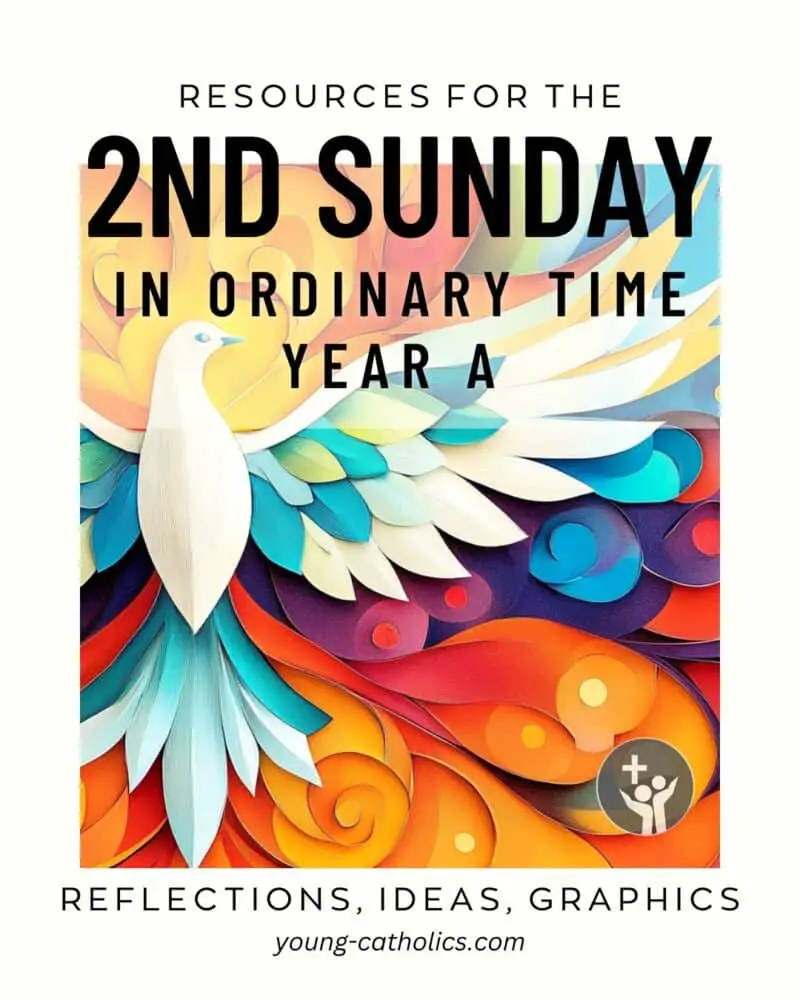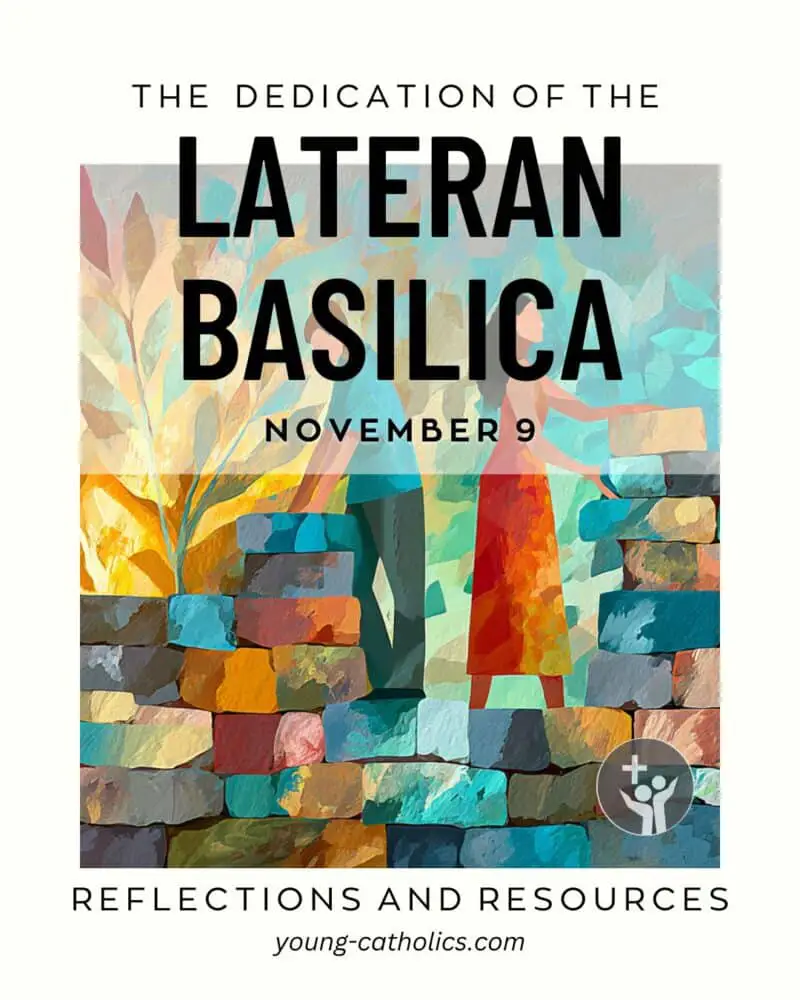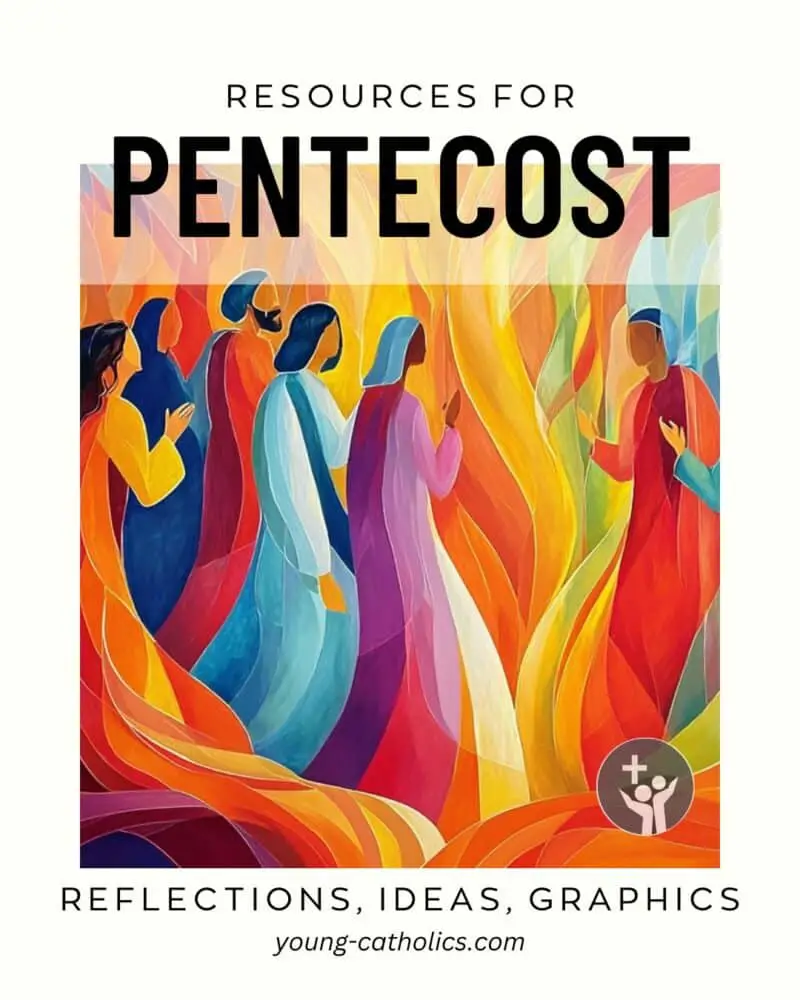1 Corinthians

The book of 1 Corinthians is a letter written by Saint Paul to the Christian community in Corinth. Corinth was a large, busy city in ancient Greece with a mix of cultures and religions. The Christians in Corinth were new in their faith and faced many challenges. They struggled with issues like divisions among believers, misunderstandings about Christian practices, and temptations from the surrounding culture. Saint Paul wrote this letter to guide and encourage them.
In this letter, Paul addresses many problems the Corinthians faced, giving them clear advice on how to live as Christians. He talks about the importance of unity, explaining that all Christians are part of one body in Christ. Paul also writes about moral issues, marriage, worship, and the role of spiritual gifts. His advice is practical and focused on helping the community grow in faith and love.
One of the central themes of 1 Corinthians is love, which Paul describes as the greatest gift from God. In chapter 13, often called the “Love Chapter,” Paul explains what love is and why it is essential in the Christian life. He emphasizes that love is patient, kind, and not self-centered. Paul’s teaching on love has inspired Christians throughout history and remains a guiding principle for the Church today.
1 Corinthians is an important book for understanding how Christians should live together as a community. Paul’s words remind us that faith should shape every part of our lives, from our relationships to how we worship. His teachings encourage unity, moral integrity, and above all, love. Through 1 Corinthians, the Church learns how to follow Christ faithfully, even in a challenging world.
Paul’s Letter to a Growing Church
Saint Paul wrote 1 Corinthians around 55 A.D. while he was staying in Ephesus, a city not far from Corinth. Paul had spent over a year in Corinth, teaching people about Jesus and starting a Christian community there. Corinth was a busy port city with many people from different cultures and religions, which made it a challenging place to live as a Christian. The new believers were surrounded by influences that did not always support their faith.
Paul was the perfect person to guide the Corinthians through these struggles. As a former Jewish leader and a convert to Christianity, Paul understood both Jewish traditions and the ways of the Gentiles. He could relate to the Corinthians and knew how to explain the teachings of Jesus in a way that they could understand. His background helped him encourage the Corinthians to leave behind their old ways and follow Christ fully.
Paul’s main purpose in writing this letter was to help the Corinthians stay united and grow in faith. He had heard that they were struggling with arguments, misunderstandings, and temptations. Paul knew that for the Church to grow, the people needed to understand what it meant to live as Christians. He wrote 1 Corinthians to give them practical advice on how to handle their problems and stay true to their faith.
This letter is one of the earliest writings of the New Testament and gives us insight into the first Christian communities. It shows us the concerns of early believers and how they sought to live out the Gospel in a diverse and often challenging environment. Paul’s teachings to the Corinthians continue to guide the Church today, helping Christians live out their faith with integrity and love.
A Practical and Personal Letter
The literary style of 1 Corinthians is straightforward and personal. Paul writes as a pastor who cares deeply for the people in Corinth, and his tone is warm yet firm. He speaks directly to the issues they face, making his points in clear, simple language. Paul often uses examples and comparisons that are easy to understand, helping his readers connect his teachings to their daily lives.
One feature of Paul’s style in this letter is his use of questions and answers. He addresses the concerns of the Corinthians by bringing up their questions and then offering clear guidance. This style makes his teaching feel practical and approachable, as if he is speaking directly to each person in the community.
Paul also uses metaphors and examples that would have made sense to the Corinthians. For instance, he compares the Church to a body with many parts, each one important and needed. This image of the Church as a body helps explain the importance of unity, showing how each member plays a role in the whole community.
Throughout 1 Corinthians, Paul’s style reflects his goal of teaching, correcting, and encouraging. His words are meant to be a guide for real-life challenges, helping the Corinthians grow in faith and live out their beliefs. The practical and personal style of this letter continues to make Paul’s teachings accessible and meaningful for Catholics today.
Unity, Love, and the Body of Christ
One of the main themes in 1 Corinthians is unity within the Christian community. Saint Paul urges the Corinthians to stay united and to avoid divisions. He teaches that every believer is part of the Church, which he describes as the Body of Christ. In Catholic theology, this idea of the Church as a body is central, showing that each person has a unique role and that all parts are needed for the Church to thrive.
Another key theme in 1 Corinthians is the importance of love. In chapter 13, often called the “Love Chapter,” Paul explains that love is the greatest gift. He describes love as patient, kind, and never self-centered. For Catholics, this teaching on love is essential, as it shows how believers are called to treat one another and live out their faith. Love is the foundation of Christian life and guides all actions.
The Eucharist is also an important theme in this letter. Paul addresses issues around the celebration of the Lord’s Supper and reminds the Corinthians to approach it with respect and unity. This teaching on the Eucharist reflects the Catholic belief in the Real Presence of Christ in Communion, emphasizing that the Eucharist brings the community together as one body.
Lastly, Paul speaks about spiritual gifts and the importance of using them to serve the Church. He encourages the Corinthians to use their gifts with humility, understanding that all talents come from God. In Catholic teaching, spiritual gifts are valued as ways that each person can contribute to the Church’s mission. Through unity, love, respect for the Eucharist, and the use of gifts, 1 Corinthians highlights themes that continue to guide Catholic life and worship.
1 Corinthians: A Guide for Christian Living Today
The teachings in 1 Corinthians are still relevant for us today. Paul’s advice on unity, love, and faith helps guide Christians through many challenges. Just like the Corinthians, we live in a diverse world with different beliefs and values. Paul’s call for unity reminds us to focus on what we share as believers, rather than what divides us.
1 Corinthians also encourages us to live with love and respect. In a world where people often focus on themselves, Paul’s message about love shows us a different way. He describes love as patient and kind, putting others before ourselves. This teaching helps us in our relationships with family, friends, and the Church.
Paul’s words about the Eucharist also remind us to honor the sacraments. He speaks of the importance of approaching Communion with respect and unity. This message encourages Catholics to appreciate the Eucharist as a source of spiritual strength and to see the Mass as a time to come together as a community.
Finally, 1 Corinthians invites us to use our gifts to help others. Paul teaches that every person has a role in the Church and that our talents should be used for the good of all. Today, this message helps us remember that we each have something valuable to offer and that we are called to serve God and each other.
A Closer Look at the Parts of 1 Corinthians
Saint Paul’s letter to the Corinthians is divided into several sections, each focusing on different issues within the church. Each part addresses specific problems and questions the Corinthians were facing, and Paul provides clear guidance.
Introduction and Thanksgiving (1:1-9)
Paul opens with a greeting and thanksgiving for the Corinthians. He expresses gratitude for their faith and spiritual gifts, setting a positive tone before addressing their issues.
Addressing Divisions in the Church (1:10–4:21)
In this section, Paul tackles divisions among the Corinthians. He emphasizes unity in Christ, reminding them that they are one body, regardless of which leader they follow. Paul warns against boasting and urges them to focus on Jesus.
Moral Issues and Church Discipline (5:1–6:20)
Here, Paul speaks about moral problems in the community, including cases of immorality. He advises the Corinthians to uphold moral standards and to avoid lawsuits among believers, calling them to respect their bodies as temples of the Holy Spirit.
Marriage and Family Life (7:1-40)
In response to questions from the Corinthians, Paul offers advice on marriage, singleness, and family life. He encourages them to live faithfully in their personal relationships.
Food Offered to Idols and Christian Freedom (8:1–10:33)
Paul addresses the issue of eating food that has been offered to idols. He speaks about Christian freedom, urging the Corinthians to consider others’ consciences and avoid actions that may lead others into sin.
Worship and the Lord’s Supper (11:1-34)
This section includes Paul’s teachings on proper conduct in worship, especially regarding the Lord’s Supper. He encourages them to approach the Eucharist with respect and unity, reminding them of its sacred meaning.
Spiritual Gifts and Love (12:1–14:40)
Paul discusses the various spiritual gifts and how they should be used to serve the community. In chapter 13, he focuses on love as the greatest gift, which should guide how they use their gifts.
The Resurrection of the Dead (15:1-58)
In this section, Paul teaches about the resurrection, addressing doubts among the Corinthians. He explains that Christ’s resurrection is the foundation of Christian hope and promises eternal life.
Final Instructions and Greetings (16:1-24)
Paul closes his letter with final instructions, including a call to collect funds for the church in Jerusalem. He ends with personal greetings and a blessing.
Each section of 1 Corinthians covers essential teachings for the early Church and remains important for Catholics today.
Living as the Body of Christ
The First Letter to the Corinthians appears many times in the Catholic lectionary. Saint Paul wrote it to help the Christian community in Corinth. They were having problems with unity, worship, and behavior.
Paul reminded them that the Church is like a body. Each person is different but needed. No one should feel better than others. God gives different gifts to help the whole Church grow.
This letter also talks about love. Paul explains that love is patient and kind. Love never fails. This reading is often used at weddings, but it speaks to all relationships in the Church and in families.
Other passages speak about the Eucharist, resurrection, and faith. Paul wanted the Corinthians to follow Jesus closely, live with hope, and stay united. These readings are helpful for youth, families, and parishes today. They call us to care for each other and serve with love.
Click on a link below for more resources and information about a specific reading.

2nd Sunday in Ordinary Time Year A
Called Together in Christ
In 1 Corinthians 1:1-3, Paul greets the Church in Corinth. He reminds them that he was chosen by God to be an apostle. He writes to the people who belong to Jesus and are called to be holy. He includes all those who call on Jesus, not just in Corinth, but everywhere.
Paul begins with a blessing. He asks that God give them grace and peace. This short greeting shows that they are part of something bigger. They are not alone. They are part of a holy people, joined in faith through Jesus Christ.

1st Sunday of Advent Year B
Strengthened in Faith and Waiting for Christ
In 1 Corinthians 1:3-9, Paul thanks God for the faith of the people in Corinth. He sees how God has blessed them with many gifts. They have grown in knowledge and speech. Their faith is strong because Jesus is working in their lives.
Paul reminds them that they have everything they need as they wait for Jesus to return. God will help them stay strong and faithful. Paul says that God is faithful and will not abandon them. They are called to live in union with Jesus and with one another.

3rd Sunday in Ordinary Time Year A
Stay United in Christ
In 1 Corinthians 1:10-13, 17, Paul asks the people to stop arguing and be united. Some were saying they followed Paul, others said they followed other leaders. Paul reminds them that they all belong to Christ, not to different groups.
He says he was sent to preach the Good News, not to gain followers for himself. Paul does not want empty words or pride to get in the way. The message of Jesus is what matters most. They are called to be one in Christ, not divided.

3rd Sunday of Lent Year B
Christ Is the True Wisdom
In 1 Corinthians 1:22-25, Paul explains that different people look for different signs. Some want miracles. Others want human wisdom. But Paul says the message of Jesus on the cross does not fit either one.
To many people, it looks weak or foolish. But for those who believe, it shows the strength and wisdom of God. God’s way is not always what people expect. What seems foolish to the world is actually the way to life.

4th Sunday in Ordinary Time Year A
God Chooses the Lowly
In 1 Corinthians 1:26-31, Paul reminds the people that most of them were not important in the eyes of the world. They were not rich or powerful. But God still chose them. He works through those who seem weak or small.
God does this so no one can brag. Everything they have comes from God. Jesus brings them wisdom, justice, and new life. So if anyone wants to boast, they should boast in the Lord.

5th Sunday in Ordinary Time Year A
Faith Built on God’s Power
In 1 Corinthians 2:1-5, Paul tells the people that he did not use fancy words or big ideas when he came to teach them. He kept his message simple and focused on Jesus, especially his death on the cross.
Paul says he was nervous and unsure, but he trusted in the Spirit. He wanted their faith to come from God’s power, not from human skill. This way, they would know their faith was real and lasting.

6th Sunday in Ordinary Time Year A
God’s Wisdom Is Greater
In 1 Corinthians 2:6-10, Paul says there is a special kind of wisdom that comes from God. It is not the kind the world teaches. It cannot be learned from leaders or experts. It is hidden and only made known through the Spirit.
This wisdom shows God’s plan for us. It is full of goodness, and it leads to life with Him. People could not see it on their own. But the Spirit helps us understand what God has prepared for those who love Him.

Dedication of the Lateran Basilica in Rome
Built on Christ, Made for God
In v, Paul says the Church is like a building. Jesus is the foundation. No one can build on anything else. Everything must be rooted in Him.
He also says that each person is God’s temple. God’s Spirit lives in us. Because of this, we are holy. We should treat ourselves and others with care and respect. If anyone tries to destroy that temple, they go against God’s plan.

7th Sunday in Ordinary Time Year A
You Belong to Christ
In 1 Corinthians 3:16-23, Paul reminds the people that they are God’s temple. God’s Spirit lives in them. They are not just ordinary people. They are holy and should be treated with care.
Paul also says not to brag about human leaders or wisdom. What the world thinks is wise is not always right. Everything belongs to the people of God—life, the world, the future—and they belong to Christ. And Christ belongs to God.

8th Sunday in Ordinary Time Year A
Let God Be the Judge
In 1 Corinthians 4:1-5, Paul says that he and the other leaders are servants of Christ. Their job is to be faithful with what God has given them. It is not important what others think of them. Even Paul does not judge himself.
He explains that only God can see everything clearly. So we should not judge too soon. When the Lord comes, He will bring everything into the light. God will show what is in each person’s heart and give praise to those who deserve it.

Easter Sunday: Resurrection of the Lord
Live with Sincerity and Truth
In 1 Corinthians 5:6b-8, Paul warns that even a small amount of sin can spread and hurt the whole community, like yeast in dough. He tells the people to get rid of what is old and harmful so they can be made new.
He uses the image of Passover. Just like the people removed old yeast before the feast, we are called to live clean and honest lives. Because Jesus gave Himself for us, we should celebrate not with sin, but with sincerity and truth.

2nd Sunday in Ordinary Time Year B
Honor God with Your Body
In 1 Corinthians 6:13c-15a, 17-20, Paul reminds the people that their bodies are meant for God. Our bodies are not just for our own use. They belong to the Lord. They are joined to Christ.
He says that our bodies are temples of the Holy Spirit. God gave us life and lives within us. We should not misuse our bodies. We were bought at a great price, so we should honor God in how we live.

3rd Sunday in Ordinary Time Year B
Focus on What Lasts
In 1 Corinthians 7:29-31, Paul tells the people that time is short. Because of this, they should not let daily things take over their lives. Even good things like marriage, work, and joys should not distract them from God.
The world around us is always changing. Paul wants believers to remember that these things will pass away. What matters most is staying close to God and living with purpose. We are called to focus on what lasts forever.

4th Sunday in Ordinary Time Year B
Keep Your Mind on the Lord
In 1 Corinthians 7:32-35, Paul talks about how different people serve God in different ways. Those who are not married can focus more on the Lord. They have fewer things to worry about.
Married people must also care for their families. This can divide their time. Paul is not saying one way is better. He just wants everyone to stay close to God. His advice helps people live in a peaceful and faithful way.

5th Sunday in Ordinary Time Year B
Sharing the Gospel with Everyone
In 1 Corinthians 9:16-19, 22-23, Paul explains that preaching the Gospel is not a choice for him. It is something he must do. He does not expect a reward. He wants to serve others freely.
Paul tries to meet people where they are. He becomes like those he is trying to reach so they can understand him better. His goal is to help as many people as possible know Jesus. He does all this for the sake of the Gospel.

3rd Sunday of Lent Year C
Learn from the Past
In 1 Corinthians 10:1-6, 10-12, Paul reminds the people about the story of the Israelites. They were all part of God’s plan. They followed Moses and received blessings, but many still turned away from God.
Paul says their mistakes should teach us something. Complaining and disobedience led to trouble. We should not think we are safe just because we started well. We must stay alert and faithful. God’s people are called to live in a way that pleases Him.

Corpus Christi Year A
One Bread, One Body
In 1 Corinthians 10:16-17, Paul talks about the meaning of sharing in the cup and the bread. When we take part in the Eucharist, we share in the life of Christ. It is not just a symbol. It connects us to Jesus and to one another.
Since we all share the one bread, we become one body. This teaches us unity. We are many people, but we are joined together in Christ. The Eucharist is a reminder that we belong to each other.

6th Sunday in Ordinary Time Year B
Live to Honor God
In 1 Corinthians 10:31–11:1, Paul tells the people to do everything for the glory of God. This includes eating, drinking, and all daily actions. He reminds them not to cause others to sin or turn away from faith.
Paul tries to please others when it helps them grow closer to God. He puts their needs first. He tells the people to follow his example, just as he follows Christ. This is a call to live with care and kindness in all things.

Holy Thursday: Mass of the Lord’s Supper
Remembering Jesus in the Eucharist
In 1 Corinthians 11:23-26, Paul tells the people what Jesus did at the Last Supper. Jesus took bread and wine and shared them with his followers. He asked them to do this in memory of Him.
Each time we take part in the Eucharist, we remember Jesus’ death. We also look forward to the day He comes again. The Eucharist is not just a meal. It is a way to stay close to Jesus and share in His saving work.

Corpus Christi Year C
The Meal That Unites Us
In 1 Corinthians 11:23-26, read on the Feast of Corpus Christi, Paul reminds the people about the Last Supper. Jesus shared bread and wine with His friends. He said to do this in memory of Him. This is how the Church began the Eucharist.
Each time we celebrate Mass, we remember Jesus’ sacrifice. We proclaim His death and look forward to His return. The Eucharist brings us together as one people. It helps us stay close to Jesus and live as His followers.

Pentecost Sunday
One Spirit, Many Gifts
In 1 Corinthians 12:3b-7, 12-13, Paul teaches that all who believe in Jesus are guided by the same Spirit. The Holy Spirit gives different gifts to each person. These gifts are meant to help others and build up the Church.
Paul says the Church is like a body. Each part is different, but all are needed. No one is left out. Whether we are strong or weak, old or young, we all share in one Spirit. We are baptized into one family in Christ.

2nd Sunday in Ordinary Time Year C
Different Gifts, Same Spirit
In 1 Corinthians 12:4-11, Paul explains that the Holy Spirit gives different gifts to different people. Some receive wisdom, others knowledge, faith, healing, or the ability to help others. Each gift has a purpose.
Even though the gifts are different, they all come from the same Spirit. The Spirit chooses what each person needs to help the whole Church. These gifts are not for personal gain. They are meant to serve others and build unity.

3rd Sunday in Ordinary Time Year C
We Are One Body in Christ
In 1 Corinthians 12:12-30, Paul teaches that the Church is like a human body. Each part is different, but all parts are important. The body needs every part to work together. No one can say they don’t belong.
Some parts may seem weaker, but they are just as needed. God made each person with a role. We should care for one another. If one part suffers, all suffer. If one part is honored, all rejoice. We are many people, but we are one body in Christ.

4th Sunday in Ordinary Time Year C
Love Is the Greatest Gift
In 1 Corinthians 12:31–13:13, Paul says that love is more important than any gift or talent. Speaking well, knowing many things, or having great faith means nothing without love. Love is patient, kind, and not proud. It does not get angry or keep score.
Paul explains that other gifts will pass away, but love will last. We only understand part of things now, but one day all will be clear. Faith, hope, and love are all important, but the greatest of these is love. Love should guide everything we do.

5th Sunday in Ordinary Time Year C
The Good News of Jesus
In 1 Corinthians 15:1-11, Paul reminds the people about the message he first shared. Jesus died for our sins, was buried, and rose on the third day. This is the center of our faith.
Paul says many people saw the risen Jesus, including Peter, the other apostles, and over five hundred others. Paul also saw Him, even though he once hurt the Church. He knows it is only by God’s grace that he can now share the Gospel. This message is what brings us hope and new life.

6th Sunday in Ordinary Time Year C
Christ Has Truly Risen
In 1 Corinthians 15:12, 16-20, Paul speaks clearly about the resurrection. Some people were saying the dead do not rise. Paul says that if that were true, then Jesus did not rise either.
But if Jesus did not rise, then faith means nothing and sins are not forgiven. Paul says this is not the case. Jesus really did rise from the dead. He is the first of many who will rise. His resurrection gives hope to all who believe in Him.

Christ the King Year A
Christ Brings Life to All
In 1 Corinthians 15:20-26, 28, Paul says that Jesus rose from the dead as the first of many. Just as death came through Adam, life now comes through Christ. All who belong to Him will be raised when He returns.
Jesus will rule until He has defeated every enemy, even death. Then He will hand over everything to God the Father. In the end, God will be all in all. This shows the full plan of God, bringing new life and unity through Christ.

Assumption of the Blessed Virgin Mary
Christ Defeats Death
In 1 Corinthians 15:20-27, Paul says that Jesus rose from the dead first, like the first fruit of the harvest. Because of Adam, all people die. But through Christ, all will be made alive.
Jesus will return and raise His people. He will destroy every power that stands against God. The last enemy to fall will be death. All things will be placed under Christ’s feet. Then God’s plan will be complete.

7th Sunday in Ordinary Time Year C
From Earthly to Heavenly
In 1 Corinthians 15:45-49, Paul compares Adam and Jesus. Adam was the first man, made from the earth. Jesus is the new man, from heaven. Adam brought death, but Jesus brings new life.
We are like Adam now, with weak and earthly bodies. But one day, we will be like Jesus. We will have new, heavenly bodies. Paul reminds us that we are made for more than this life. We are called to live with God forever.

8th Sunday in Ordinary Time Year C
Stand Firm in the Lord
In 1 Corinthians 15:54-58, Paul tells the people that death will be defeated. When our weak bodies are changed, death will be swallowed up. Through Jesus, we have victory over sin and death.
Because of this hope, Paul encourages everyone to stay strong in faith. He tells them to keep working for the Lord. Their efforts are not wasted. Everything done for God has meaning and will last.

Assumption of the Blessed Virgin Mary, Vigil Mass
Victory Over Death
In 1 Corinthians 15:54b-57, Paul tells the people that death will not have the final word. When our bodies are changed, death will be defeated. It will no longer have power over us.
This victory comes through Jesus. Sin and death once ruled, but Jesus took that away. Now, through Him, we can live in hope. Paul reminds us to thank God for this gift and to stay strong in our faith.
At Weekday Masses
- Thursday of the 21st Week in Ordinary Time II – 1 Corinthians 1:1-9: Greeting and Thanksgiving
- Friday of the 21st Week in Ordinary Time II – 1 Corinthians 1:17-25: The Power of the Cross
- Saturday of the 21st Week in Ordinary Time II – 1 Corinthians 1:26-31: God Chooses the Humble
- Monday of the 22nd Week in Ordinary Time II – 1 Corinthians 2:1-5: Faith in God’s Power
- Tuesday of the 22nd Week in Ordinary Time II – 1 Corinthians 2:10b-16: Understanding Through the Spirit
- Wednesday of the 22nd Week in Ordinary Time II – 1 Corinthians 3:1-9: Spiritual Maturity
- Thursday of the 22nd Week in Ordinary Time II – 1 Corinthians 3:18-23: Wisdom and Foolishness
- Friday of the 22nd Week in Ordinary Time II – 1 Corinthians 4:1-5: Trustworthy Stewards of Christ
- Saturday of the 22nd Week in Ordinary Time II – 1 Corinthians 4:6b-15: A Call to Humility and Endurance
- Monday of the 23rd Week in Ordinary Time II – 1 Corinthians 5:1-8: Remove the Old Yeast
- Tuesday of the 23rd Week in Ordinary Time II – 1 Corinthians 6:1-11: Settle Disputes Among Yourselves
- Wednesday of the 23rd Week in Ordinary Time II – 1 Corinthians 7:25-31: Living in the Present Time
- Thursday of the 23rd Week in Ordinary Time II – 1 Corinthians 8:1b-7, 11-13: Love Over Knowledge
- Friday of the 23rd Week in Ordinary Time II – 1 Corinthians 9:16-19, 22B-27: Run to Win the Prize
- Saturday of the 23rd Week in Ordinary Time II – 1 Corinthians 10:14-22: One with Christ, Set Apart from Idols
- Monday of the 24th Week in Ordinary Time II – 1 Corinthians 11:17-26, 33: The Lord’s Supper and Unity
- Tuesday of the 24th Week in Ordinary Time II – 1 Corinthians 12:12-14, 27-31a: One Body in Christ
- Wednesday of the 24th Week in Ordinary Time II – 1 Corinthians 12:31-13:13: The Excellence of Love
- Saints Phillip and James, Apostles – 1 Corinthians 15:1-8: Gospel of Salvation
- Thursday of the 24th Week in Ordinary Time II – 1 Corinthians 15:1-11: The Gospel We Stand In
- Friday of the 24th Week in Ordinary Time II – 1 Corinthians 15:12-20: The Importance of the Resurrection
- Saturday of the 24th Week in Ordinary Time II – 1 Corinthians 15:35-37, 42-49: The Resurrection of the Body
Resources
- Bible in a Year Podcast Episodes for the First Letter to the Corinthians
- Staying Focused on Christ (Chapters 1 and 2)
- What Are You Building On? (Chapters 3 and 4)
- Calling Out Sin and Calling Us Back (Chapters 5 and 6)
- Stay Where You Are and Be Faithful (Chapters 7 and 8)
- Run Like It Matters (Chapters 9 and 10)
- Gifts, Order, and the Real Presence (Chapters 11 and 12)
- Love Is the Point (Chapters 13 and 14)
- The Truth About the Resurrection (Chapter 15)
- Final Words from a Loving Shepherd (Chapter 16)
- Social Media Graphics and Bulletin Artwork
Staying Focused on Christ
In this episode of the Bible in a Year Podcast, Fr. Mike Schmitz talks about 1 Corinthians chapters 1 and 2. He explains that Paul wanted the church in Corinth to stay united. Some people were dividing into groups, saying they followed Paul, Apollos, or Peter. Paul reminds them that they should all follow Christ, not human leaders.
Fr. Mike points out that Paul did not try to impress the Corinthians with fancy words. Instead, Paul focused on preaching Jesus Christ and him crucified. He did this so their faith would be based on God’s power, not on clever speeches.
Paul had preached in Athens before Corinth, using wise arguments, but that approach didn’t lead to many conversions. So when he came to Corinth, he chose a new way—he let God’s power work through him. Fr. Mike says this likely included miracles that helped people believe.
Fr. Mike says that many Christians in Corinth came from rough backgrounds. Some had fallen back into old habits. Paul is writing to bring them back to the heart of the gospel.
What Are You Building On?
In this episode of the Bible in a Year Podcast, Fr. Mike Schmitz reflects on 1 Corinthians chapters 3 and 4. He explains that Paul is still dealing with division in the Corinthian church. Some people are arguing over which teacher they follow—Paul or Apollos. But Paul reminds them that all their work is for God, and only God gives the growth.
Fr. Mike highlights Paul’s image of building on a foundation. The foundation is Jesus Christ, but everyone builds differently. On the day of judgment, each person’s work will be tested by fire. Fr. Mike says this passage points to the idea of purgatory—a time of purification for believers whose lives still have things that need to be burned away.
He also mentions how Paul calls the church the temple of the Holy Spirit. Paul warns that no one should destroy that temple. Fr. Mike reminds listeners that we belong to Christ and that the Holy Spirit lives in us. That means how we live really matters.
Fr. Mike ends by pointing to a small but important part of 1 Corinthians 4. Paul says he became a “father” to the Corinthians. Fr. Mike uses this to explain why Catholic priests are called “Father.” It shows how Paul—and today’s priests—can share in God’s role of guiding and loving his people.
Calling Out Sin and Calling Us Back
In this episode of the Bible in a Year Podcast, Fr. Mike Schmitz reflects on 1 Corinthians chapters 5 and 6. He says Paul is shocked that a man in the church is living with his stepmother and no one is correcting him. Fr. Mike explains that Paul is not being harsh for no reason—he wants the man to repent and come back to the faith. This is where we get the idea of excommunication, not to punish, but to wake someone up.
Fr. Mike explains that excommunication doesn’t throw someone out. It just shows the truth—they have already stepped away by their own actions. Paul is clear that serious public sin can’t be ignored. The goal is always repentance and return.
Chapter 6 shows another problem: Christians suing each other. Fr. Mike says this is a failure of unity. Paul reminds them that they should treat each other like family, not enemies.
Fr. Mike also talks about a list of serious sins in this chapter. Paul says some of the Corinthians used to live that way, but they were changed. Fr. Mike says the message is simple: we are all broken, and we are all loved. Because we were bought at a price, we should glorify God with our bodies.
Stay Where You Are and Be Faithful
In this episode of the Bible in a Year Podcast, Fr. Mike Schmitz reflects on 1 Corinthians chapters 7 and 8. He says Paul encourages people to be faithful in whatever state of life they are in. Whether single, married, or widowed, Paul reminds them that holiness is not found in a change of status, but in being faithful where God has placed you.
Fr. Mike explains that Paul’s message is clear—stop chasing a “magic bullet.” Don’t assume that changing your life situation will suddenly make you holy. Paul wants everyone to lead the life the Lord has assigned them and stay rooted in that call.
On chapter 8, Fr. Mike talks about food offered to idols. Paul says idols aren’t real, so eating the meat isn’t a sin. But if it causes others to stumble, we should avoid it out of love.
Fr. Mike points out that our choices affect others. Even if something isn’t a sin for us, it can hurt someone else’s faith. So we need to be careful, because we belong to each other in the Body of Christ.
Run Like It Matters
In this episode of the Bible in a Year Podcast, Fr. Mike Schmitz talks about 1 Corinthians chapters 9 and 10. He says Paul explains that, even though he had the right to be supported by the people, he chose not to use that right. Paul worked as a tentmaker so no one could accuse him of preaching for personal gain. He gave up his rights to win more people to Christ.
Fr. Mike points out how Paul became “all things to all people.” He met people where they were and adapted to reach them with the gospel. This shows Paul’s love and willingness to do whatever it takes to help others know Jesus. Fr. Mike reminds us that Paul’s focus was always on saving souls.
Chapter 10 gives a warning from Israel’s past. Paul says their mistakes were written down for us so we can learn from them. Fr. Mike says temptation is real, but God always gives us a way to endure it. We are not alone in our struggles.
Fr. Mike also shares Paul’s image of running a race. Just like athletes train hard to win, we should work hard for heaven. He says if Olympians work harder for medals than we do for heaven, something’s wrong. So we should strive for holiness with the same focus and effort.
Gifts, Order, and the Real Presence
In this episode of the Bible in a Year Podcast, Fr. Mike Schmitz talks about 1 Corinthians chapters 11 and 12. He begins by explaining what Paul means when he talks about men, women, and headship. Fr. Mike says Paul is not saying men are better than women. He explains that “head” means “source,” not “superior.”
Fr. Mike also talks about head coverings. In Paul’s time, a woman with an uncovered head in public might be mistaken for a prostitute. Fr. Mike says Paul wanted women to dress in a way that didn’t cause confusion or scandal. It was about caring for others, not following old laws.
Fr. Mike spends time on the Eucharist too. Paul warns that taking Communion in an unworthy way is serious. Fr. Mike explains that this shows how real Jesus is in the Eucharist. He says this is why Catholics go to confession before receiving Communion if they’ve committed serious sin.
Chapter 12 is about spiritual gifts. Fr. Mike says the Holy Spirit gives different gifts to different people, and they are all important. Paul reminds the Church that we are one body in Christ, and we need each other. Fr. Mike says the Church still teaches this today.
Love Is the Point
In this episode of the Bible in a Year Podcast, Fr. Mike Schmitz talks about 1 Corinthians chapters 13 and 14. He says Paul shows that love is more important than any spiritual gift. Even if someone has great faith, wisdom, or power, it means nothing without love. Love is what lasts, even in heaven.
Fr. Mike explains that gifts like healing, tongues, and prophecy help the Church grow. But these gifts don’t make a person holy on their own. God gives them to build up others, not to show off.
He says Paul wants believers to use their gifts with order and care. Speaking in tongues is good, but it should not confuse people. Fr. Mike says prophecy is better in church, because it helps everyone understand and grow in faith.
Fr. Mike reminds us that Paul says love is the greatest gift. It helps us use all the other gifts the right way. Love means choosing what is best for others. That’s how the Church grows stronger.
The Truth About the Resurrection
In this episode of the Bible in a Year Podcast, Fr. Mike Schmitz talks about 1 Corinthians 15. He says Paul is clear that Jesus really rose from the dead. It was not just in the hearts of the disciples. It was a real, physical resurrection.
Fr. Mike explains that if Christ didn’t rise, then our faith means nothing. But Paul says Christ did rise. That means we can hope for our own resurrection too. Death is no longer the end.
Fr. Mike says we will rise with real, physical bodies. Just like Jesus’ body after the resurrection, our bodies will be changed. They will be strong, full of glory, and made to last forever.
He also shares how this message gives us hope. We still grieve when someone dies, but we don’t grieve like those who have no hope. Christ has conquered death, and we can live forever with him.
Final Words from a Loving Shepherd
In this episode of the Bible in a Year Podcast, Fr. Mike Schmitz reflects on 1 Corinthians 16. He says Paul is wrapping up his letter with some practical and personal notes, but also with love and strength.
Fr. Mike highlights how Paul encourages the people to support others in need. Paul tells them to set aside money each week to help the Church in Jerusalem. Fr. Mike points out that this shows the early Christians were thinking about the wider Church, not just their own group.
Paul also gives travel plans and asks them to welcome Timothy with kindness. Fr. Mike notes that Paul says “let no one despise him,” which reminds him of Paul’s later letter to Timothy. This shows how close Paul was with Timothy and how he cared about his younger helpers.
Fr. Mike finishes by connecting Paul’s final words with something Jesus once said to Paul. Jesus had told Paul to be strong and not afraid. Now Paul shares that same message with the Corinthians: be strong, be brave, stand firm in faith, and do everything in love. Fr. Mike says this is a message for us too.

The Bible
The Bible is central to understanding our faith and growing closer to God. It contains stories, teachings, and messages that guide us in our daily lives. Learning more about the Bible can help us connect with God’s Word and find answers to life’s questions. Visit this helpful resource for information about the Bible, its structure, and tips for reading it. This guide makes it easier to explore the Bible, whether you’re new to reading it or want to deepen your understanding. Discover how Scripture can inspire and support you in your faith journey.
Social Media Graphics and Bulletin Artwork
The Greatest of These Is Love

Celebrate the timeless message of love from 1 Corinthians with this vibrant image, perfect for bulletins, newsletters, or parish reflections. It beautifully illustrates the call to live with faith, hope, and love, with love being the greatest of all.
Download and share it to inspire your community to embrace this teaching in their daily lives, spreading Christ’s love to everyone they meet.
Paid subscribers may download a large copy this digital artwork without watermarks, suitable for use in bulletins, social media, newsletters, etc., free of charge by clicking here. You must be logged in as a paid subscriber to access the file.
Only current paid subscribers have the rights to use the artwork.
Questions and Answers about 1 Corinthians
What is 1 Corinthians about?
1 Corinthians is a letter from Saint Paul to the Christian community in Corinth. Paul writes to help them deal with issues like divisions, moral behavior, and worship. He encourages them to stay united, live with love, and follow the teachings of Jesus.
Why did Paul write this letter?
Paul wrote 1 Corinthians to address problems and answer questions in the Corinthian church. He had heard about disagreements and challenges they faced, so he wrote to offer guidance and remind them of Christian values.
What does Paul say about unity?
Paul teaches that all Christians are part of one body in Christ, meaning that they should work together and support each other. He warns against letting disagreements divide them, emphasizing that faith in Jesus unites them.
What does 1 Corinthians say about love?
In chapter 13, Paul describes love as patient, kind, and selfless. He explains that love is the most important gift and should guide all that we do. This chapter is often called the “Love Chapter.”
How does 1 Corinthians talk about the Eucharist?
Paul talks about the importance of the Lord’s Supper, which Catholics understand as the Eucharist. He reminds the Corinthians to approach it with respect and unity, understanding that it is a special meal where we remember Jesus’ sacrifice.
What are spiritual gifts?
Spiritual gifts are abilities given by the Holy Spirit to help serve the Church. Paul mentions gifts like teaching, healing, and wisdom. He encourages the Corinthians to use these gifts with humility and for the good of the whole community.
Why does Paul compare the Church to a body?
Paul uses the image of a body to show how each member of the Church has an important role. Just as each part of a body is needed, each person’s gifts help build up the Church. This teaches us that we all have something valuable to offer.
What does Paul say about marriage?
In chapter 7, Paul answers questions about marriage and family life. He encourages married couples to be faithful and respectful to each other. He also speaks to those who are single, encouraging them to live in a way that honors God.
Why is the resurrection important in 1 Corinthians?
In chapter 15, Paul explains that Jesus’ resurrection is the foundation of Christian hope. He teaches that because Jesus rose from the dead, we can trust in eternal life. This gives hope to all believers.
How is 1 Corinthians relevant for Catholics today?
1 Corinthians reminds Catholics to live with love, use their gifts to help others, and stay united in faith. Paul’s teachings guide us in how to treat others, worship with respect, and trust in God’s promises.
Living as One: Lessons from 1 Corinthians
The book of 1 Corinthians is a letter from Saint Paul to the Christian community in Corinth. Paul had founded the church there, but after he left, he heard they were facing many problems. The Corinthians struggled with divisions, misunderstandings about Christian teaching, and temptations from the culture around them. Paul wrote this letter to guide them, help them stay united, and remind them of how to live as followers of Jesus.
In 1 Corinthians, Paul covers many key topics. He talks about the importance of unity, teaching that all believers are part of one body in Christ. This idea of the “Body of Christ” is important in Catholic theology and shows that every person has a role in the Church. Paul also explains the importance of love in Christian life. In chapter 13, often called the “Love Chapter,” he describes love as patient, kind, and selfless. For Catholics, this passage is a reminder that love is at the heart of Christian life.
Paul also addresses issues related to worship and the Eucharist, teaching that the Lord’s Supper should be treated with respect. He encourages the Corinthians to see the Eucharist as a sacred meal that brings them together as one community. This teaching is central to Catholic beliefs about the Real Presence of Christ in the Eucharist and the importance of Communion.
Finally, Paul speaks about spiritual gifts, explaining that the Holy Spirit gives different talents to each person. He encourages the Corinthians to use their gifts for the good of the whole community, showing that every gift is important. Through all of these teachings, Paul reminds the Corinthians—and Catholics today—that Christian life is about unity, love, respect, and service to others.
Your Turn
1 Corinthians offers valuable lessons on unity, love, and living as a community of faith. Paul’s words encourage us to think about how we treat others and what it means to live out our faith each day.
Take some time to read 1 Corinthians and reflect on how it speaks to you. Then, share your thoughts and experiences in the comments section. How has this letter inspired or challenged you in your own life? Let’s learn together by sharing our insights and experiences!


Leave a Reply